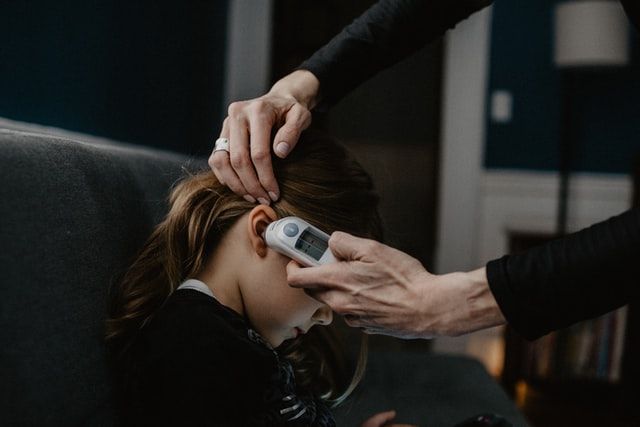
The Latest on RSV: Updates, Threats, and Prevention
As 2022 draws to a close, many are thinking of getting together with family and making holiday memories. This time of year also calls our attention to the increasing risks of respiratory illnesses like the flu and RSV.
With rising exposure to RSV and emergency room visits, it is essential to understand what RSV is and how serious a respiratory illness can be. You can also take steps to stop this virus's spread and protect your family.
What Is RSV?
Respiratory syncytial virus (RSV) is a sickness that causes cold-like symptoms in most sufferers, who usually recover in 1-2 weeks. You can spread RSV when:
- You make direct contact with a child or adult with RSV.
- An infected person sneezes or coughs, causing droplets to enter your nose, eyes, or mouth.
- You touch an infected surface and then bring your hand to your face.
RSV symptoms can emerge within 4-6 days of exposure, either in phases or simultaneously. The most common ones include:
- Coughing
- Decreased appetite
- Fever
- Runny nose
- Sneezing
- Wheezing
RSV is the most common cause of bronchiolitis, an inflammation and build-up of congestion in the lung’s small airways. Pneumonia, a lung infection, can also result from RSV. Most healthy infants and adults with RSV do not need hospitalization unless they have trouble breathing or get dehydrated. Some patients only need to be in the hospital for a few days, but others with a more serious illness might need IV fluids, extra oxygen, or intubation.
RSV can be especially dangerous to infants and young children under one. Symptoms among very young children primarily include breathing difficulties, irritability, and diminished activity. RSV can become severe and life-threatening for
- Older adults with chronic conditions like asthma, congestive heart failure, and chronic obstructive pulmonary disease (COPD)
- People with compromised immune systems, such as organ transplant patients, people receiving chemotherapy, or individuals with HIV or AIDS
- Babies or children born prematurely, with weakened immune systems, or heart or lung disease
The Current Threat of RSV
In the United States, RSV has appeared earlier than experts predicted. This surge has resulted in RSV patients occupying 78% of pediatric hospital beds this flu season. Although overall rates of RSV appear to be slowing down, positive tests for the infection are still higher than in previous years. Moreover, hospitalizations for RSV are about 10 times higher than what is typical for this time of year.
Despite the increased attention to RSV, this respiratory illness is nothing new to the United States. Each year, there are 58,000-80,000 RSV-related hospitalizations among children under the age of five. This infection results in 100-300 deaths annually among children in the same age group. Also, up to 10,000 RSV-related deaths occur yearly among adults over 65.
What You Can Do to Prevent the Spread
With the current holiday season underway, there is an increased potential for respiratory illness. As families and friends prepare for their get-togethers, RSV and other infections like the flu and COVID-19 remain serious threats.
Dr. Anthony Fauci, the chief White House medical advisor, warns that this year’s flu season always has the potential to fuel an emergency outbreak of respiratory illnesses. If you plan to enjoy the holidays with others, protect yourself by staying up to date on your flu and COVID-19 vaccinations this season.
Unfortunately, you cannot get immunized against RSV, although researchers are currently working on vaccines and antiviral drugs. If you are the parent of an infant or at-risk child, you might ask your doctor about palivizumab. When administered to your child, this drug can help prevent severe sickness from RSV. However, it does not prevent infection from occurring.
Although most RSV infections run their course after a week or two, you can never be too careful about protecting yourself and others. The Centers for Disease Control and Prevention (CDC) provides strategies that can limit the spread of RSV:
- Clean and disinfect surfaces, doorknobs, mobile devices, and other commonly touched surfaces often.
- Avoid close-contact behaviors like touching hands, kissing, or sharing eating utensils.
- Use a tissue or upper shirt sleeve—not your hand—to cover sneezes and coughs.
- Wash your hands with water and soap for 20 seconds or longer.
- Avoid touching your children’s hands and faces with unwashed hands.
- Limit the time you spend in childcare centers while RSV rates are surging.
If you are the parent of a newborn or very young child, take extra precautions when the risk for respiratory sickness is high. Establishing boundaries with well-meaning relatives or strangers might be challenging during holiday gatherings. If someone wants to kiss or hold your child, gently explain that you only mean to avoid infection and keep everyone safe.
Research and materials for this article were compiled, written, and distributed on behalf of the National Public Health Information Coalition. The views and opinions expressed in this blog are those of the various authors and do not necessarily reflect the official policy or position of the National Public Health Information Coalition or its members.
References
https://www.cdc.gov/rsv/index.html
https://www.cdc.gov/rsv/about/transmission.html
https://www.cdc.gov/rsv/about/symptoms.html
https://www.mayoclinic.org/diseases-conditions/bronchiolitis/symptoms-causes/syc-20351565
https://www.mayoclinic.org/diseases-conditions/pneumonia/symptoms-causes/syc-20354204
https://www.lung.org/lung-health-diseases/lung-disease-lookup/rsv/learn-about-rsv
https://abcnews.go.com/Health/suffering-flu-rsv-covid-19-difference/story?id=94211146
https://www.cnn.com/2022/12/02/health/flu-respiratory-viruses-hospitalization-increase/index.html
https://academic.oup.com/jid/article/225/6/1100/6042579
https://jamanetwork.com/journals/jamanetworkopen/article-abstract/2789446
https://thehill.com/policy/healthcare/3623955-fauci-warns-of-pretty-bad-flu-season/

